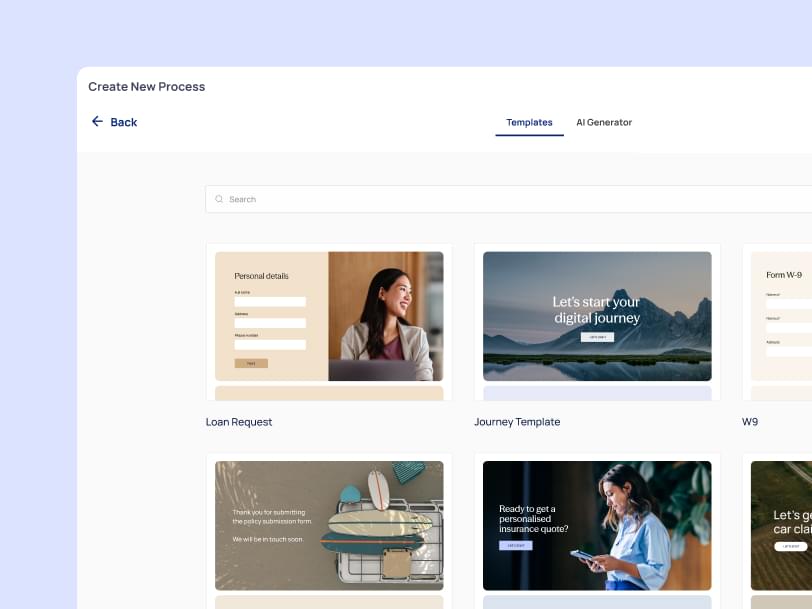Digital tools are transforming traditional job roles in the insurance industry, leading to both opportunities and challenges. First and foremost, digital tools and artificial intelligence (AI) are automating many repetitive and time-consuming tasks. This is critical in the insurance industry, where repetitive, administrative tasks traditionally monopolize a large portion of employees’ time.
For instance, according to a 2022 study by Accenture, underwriters spend an average of 40% of their time on administrative tasks, leaving them less time to focus on their core function. Digital transformation enables underwriters and other insurance employees who previously spent significant amounts of time on manual data entry, paperwork, and administrative work to focus on more value-added activities that require human judgment and creativity.
It’s not only administration—advanced data analytics and AI are also transforming the underwriting process itself. Insurers can now use sophisticated algorithms to analyze vast amounts of data to assess risk more accurately and efficiently than ever before. This is altering the role of underwriters, who are now required to interpret data insights and make more strategic decisions.
Underwriters are not the only insurance employees who are being impacted by digital transformation—technology can be used to monitor and report on complex and dynamic regulatory requirements as well. Even compliance and legal experts can monitor and report on various regulatory requirements more efficiently using digital tools.
In addition, digital tools are streamlining claims processing by enabling customers to submit claims online. Once they have been submitted, insurers can use AI to quickly assess and process those claims. In fact, in a 2022 Accenture survey, 65% of claims executives said that they plan to invest more than $10 million in AI in the next three years. That means that instead of processing claims manually as they did in the past, claims adjusters will need to adapt to roles that involve managing automated processes, data analysis, and decision-making based on digital insights.
The future of work: Opportunities
Although there is often a concern that new technology will replace human workers in the insurance industry, technology can actually open up new job opportunities. For example, with the increasing prevalence of cyber threats, the demand for cybersecurity experts within insurance companies has grown. These professionals focus on assessing and mitigating risks associated with cyber-attacks and data breaches on insurance platforms.
Data-driven decision-making is becoming central to insurance operations. That trend is driving an increasing demand for actuaries and data analysts in insurance, who use digital tools to analyze large datasets, build predictive models, and inform pricing and risk strategies.
Last but not least, digital tools have facilitated remote work and collaboration. That means that insurance professionals now have more flexible work options and can easily collaborate with colleagues and clients across geographic locations, changing the dynamics of traditional office-based roles.
EasySend makes it easier to integrate these new roles by facilitating data management. First and foremost, EasySend enables a seamless digital data intake process, verifying data in real time, and ensuring that actuaries and data analysts have high-quality data to work with. The platform utilizes leading cybersecurity technology and best practices, supporting in-house cybersecurity efforts. Finally, it supports remote work since employees in various roles and locations can easily access its cloud-based platform, preventing the siloing common in legacy systems.
The future of work: Challenges
Although technology opens new opportunities in the workplace, it also poses unique challenges.
The need for new skills and expertise
Technology creates demand for new roles in insurance, but that doesn’t always mean that existing insurance employees have the capacity to take on the new roles. Many new roles like cybersecurity and data analysis require a unique skill set and a high level of technical expertise that can take years to acquire.
This poses a challenge for employers as well. There is high market demand for workers with these skill sets across multiple industries, and insurance providers often struggle to fill open roles. Furthermore, given the high demand, salaries for these positions are high, limiting the number of highly skilled workers insurance providers can afford.
In addition, as digital tools continue to evolve, ongoing learning and upskilling are essential for all insurance professionals to stay relevant, even those in traditional roles. That means that insurance providers need to build systems that help their employees adapt to new technologies and understand industry trends.
Balancing technology and human interaction
Another challenge is balancing technology and human interaction in insurance. Multiple studies have found that customers prefer a combination of digital and human interaction in their insurance journeys. For example, a McKinsey survey found that 84% of German insurance customers use digital tools in the customer journey, but 55% cannot imagine actually buying an insurance product online.
Therefore, as insurers increasingly utilize digital tools like chatbots and virtual assistants to handle customer inquiries, policy renewals, and basic support, it is important that they also integrate human support into the customer journey. Creating seamless transitions between the two requires smart data management, and designing integrated workflows. Digital data intake tools like EasySend are critical in this process. Not only do they simplify data collection and verify data quality, but they also make it easy for human customer service representatives to access the data that is collected and utilize it in complex inquiries and personalized assistance.

Human resources and the digital shift
As digital transformation changes roles in the insurance industry’s workforce, the role of the HR department has also evolved. To foster a digital-ready workforce, HR departments in insurance companies have begun to take on the challenge of talent management in the digital era. That means helping existing employees develop new skills, and supporting continuous learning through regular training, online courses, and certification processes.
Even with the best training and skill-building programs in place, it can be hard for insurers to keep up with the pace of technology while maintaining governance and control. No-code platforms like EasySend allow them to better manage the challenge by offloading some of the burden and amplifying the capabilities of overextended IT departments to reduce backlogs. With EasySend, it’s also easier to empower all employees, including those who don’t come from a technical background, to take on new roles within the organization.
HR departments also need to cultivate digital leadership, including at the top levels of the organization. Digital leadership can stay up to date on digital trends, help integrate new technology into existing workflows, create an environment for safe experimentation, offer constructive feedback, recognize achievements, and ensure inclusivity in all digital readiness efforts. The HR team can support these efforts by encouraging a flexible, agile mindset and collaborative projects across departments, as well as introducing user-friendly platforms like EasySend that don’t require extensive technical knowledge but do support data-driven decision-making.
Preparing for the future of insurance
Technology is advancing at such a rapid pace that it can be hard to predict what will happen a year from now, let alone a decade into the future. From IoT-based data to usage-based and personalized insurance products, AI and other advanced technologies are already transforming the insurance industry in ways that were unimaginable a short time ago and are likely to continue to do so in years to come.
That’s why the best way to build resilience, “future proof” insurance products and systems, and lay the foundation for long-term success is by designing flexibility and adaptability into their infrastructure. No-code platforms like EasySend are key to achieving that goal. With EasySend’s digital data intake, insurers can build the capacity for smart data management and data-based decision-making, throughout the organization. Insurers can empower employees to take on new roles, respond quickly to emerging trends, and develop solutions to meet market needs much faster than traditional development processes. With EasySend, insurance providers have the tools they need to thrive in a dynamic future.





